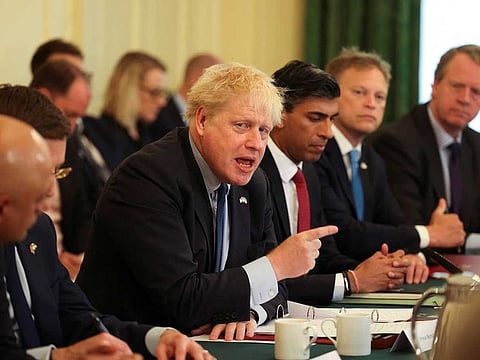A bittersweet win for Johnson in the UK
British PM won a vote of confidence but leads a deeply divided party

On Monday, Conservative party Members of Parliament in the United Kingdom held a vote of confidence in their leader, Prime Minister Boris Johnson. The vote, necessitated when at least 15 per cent of the party write letters calling for one, had been called early on Monday morning, giving Johnson little time to organise his defence or rally his supporters.
The outcome of the vote saw Johnson win the support of 211 of his MPs. Tellingly, 148 — more than 41 per cent — voted against him. Under the party’s rules, he cannot face another leadership challenge for 12 months. But a year seems so far away now for a leader whose confidence vote result showed less support than that won by former prime minister Theresa May at the height of the Brexit crisis.
Also Read: UK has a new model of politics
For now, the message from Downing Street is one of unity, that the party must unite behind the leader and move on from the months of division caused by intense criticism of his handling of the affairs of state in his official residence, where staff partied and were subsequently fined by police — Johnson himself was penalised — for breaking lockdown rules that the government brought in to fight the coronavirus.
While the message may be of unity, the strength of that message is likely to be severely tested on June 23 when two separate by-elections take place. As things stand now, opinion polls suggest the Conservatives will lose one of those to Labour, the other to a resurgent Liberal Democrat party that has benefited from Tory supporters who cannot make the ideological switch to voting Labour.
This victory is far from resounding, showing that deep discontent remains within the party about Johnson’s behaviour and indeed some of his policies. The strength of opposition shows that this leadership crisis will not end here.
Other Conservative leaders and prime ministers have been in this position before. Margaret Thatcher won by a slightly larger margin in a vote of confidence — she resigned a week later. Theresa May also won by a larger margin, and resigned six months later. John Major too won by a similar margin to Johnson. His term ended later in a resounding general election defeat.
The question now for Johnson is whether to forge ahead as best he can, or try to alter course. The future, however, is far from unclear now.



